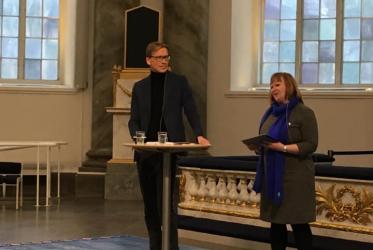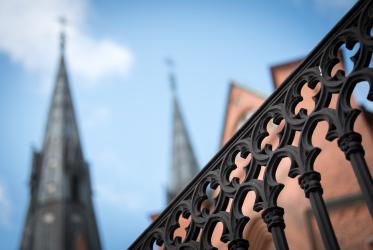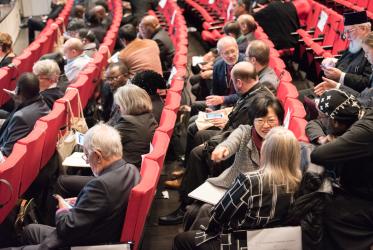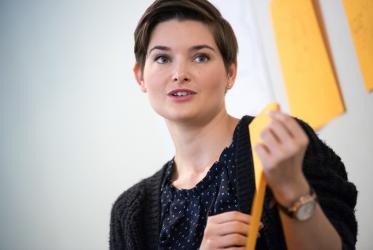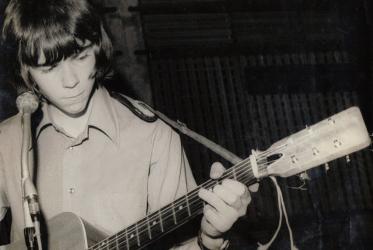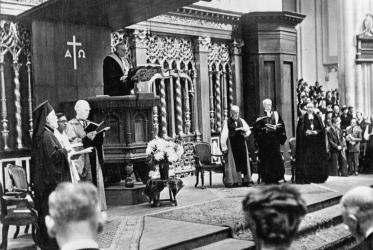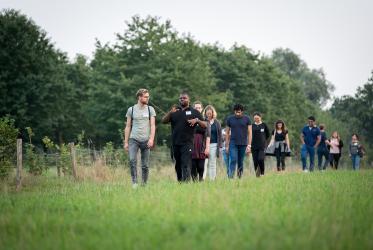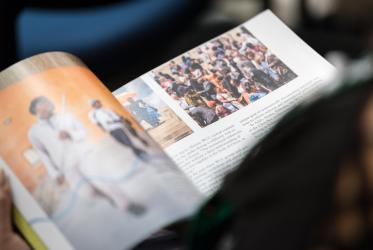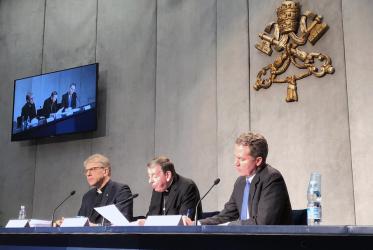Displaying 61 - 80 of 133
08 February 2019
WCC Executive Committee envisions future for one ecumenical movement
08 November 2018
WCC moderator, general secretary address Executive Committee
02 November 2018
WCC Executive Committee convenes in Uppsala, Sweden
01 November 2018
WCC representative shares insights on youth at Synod of Bishops
15 October 2018
Romani people seek “lives of decency, dignity, and justice”
27 September 2018
Paving the way for ecumenical studies, learning English in Bossey
24 September 2018
Assisi: On the ecumenical pilgrimage into a more sustainable future
03 September 2018
#WCC70: Nathan Söderblom, ecumenical pioneer
29 August 2018
#WCC70: The life-changing gift of serving as a steward
24 August 2018
#WCC70 Amsterdam, 1948 (1): Covenanting in prayer
22 August 2018
70 years in, youth pilgrimage offers room for new visions
22 August 2018
Broken glass of hope grown out of rubble
16 July 2018
